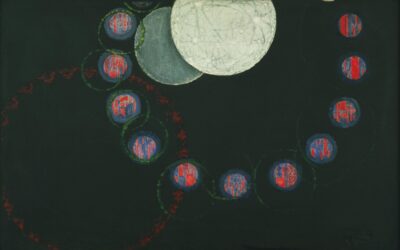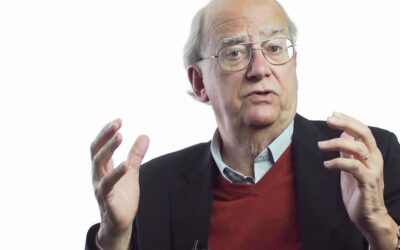Can Therapy Treat Dysautonomia and Hypermobility? Dysautonomia and hypermobility conditions, such as Postural Orthostatic Tachycardia Syndrome (POTS) and Ehlers-Danlos Syndrome (EDS), represent a spectrum of complex, often overlapping disorders that challenge our understanding of the mind-body connection (Hakim et al., 2021). These conditions, which affect the autonomic nervous system and connective tissues, respectively, can have a profound impact on an individual's physical, emotional, and social well-being...
EDS and MCAS: Understanding the Complex Connection
Can Therapy Treat Ehlers-Danlos Syndrome (EDS) and Mast Cell Activation Syndrome (MCAS)? Ehlers-Danlos Syndrome (EDS) and Mast Cell Activation Syndrome (MCAS) are two complex, often co-occurring conditions that present significant challenges for both patients and healthcare providers. The intricate interplay between these disorders creates a constellation of physical and psychological symptoms that require a multidisciplinary, integrative approach to management and treatment (Molderings et al., 2021). To fully...
Understanding POTS and Dysautonomia: A Mind-Body Perspective
Can Psychotherapy Treat POTS and Dysautonomia? Postural Orthostatic Tachycardia Syndrome (POTS) and dysautonomia are complex conditions that significantly impact the lives of those affected. These disorders of the autonomic nervous system cause a wide range of physical symptoms, but their effects extend far beyond the purely physiological realm. Living with POTS and dysautonomia presents unique challenges that affect both body and mind, requiring a holistic therapeutic approach that addresses not just the...
The Role of Social Support in Promoting Perinatal Well-Being
How can Social Support Make Maternity Healthier? The transition to parenthood is a significant life event that brings both joy and challenges. For many new parents, navigating the demands of caring for an infant while also adjusting to changes in relationships, identity, and daily life can be overwhelming. Social support, which refers to the emotional, informational, and practical assistance provided by others, plays a critical role in promoting well-being and resilience during the perinatal period. In this...
Exploring the Role of Trauma in Perinatal Health Outcomes
Exploring the Role of Trauma in Perinatal Health Outcomes How Does Trauma Effect Childbirth? Trauma is a pervasive and often overlooked factor in shaping perinatal health outcomes. From childhood adversity to interpersonal violence to birth-related trauma, experiences of harm and threat can have profound impacts on women's physical, emotional, and psychological well-being during pregnancy and the postpartum period. In this article, we will delve into the complex relationship between trauma and perinatal health,...
Navigating the Complex Landscape of Perinatal Mental Health
Navigating the Complex Landscape of Perinatal Mental Health Perinatal mental health, which encompasses the psychological well-being of women during pregnancy and the postpartum period, is a critical yet often overlooked aspect of maternal health care. While the transition to motherhood can be a time of great joy and excitement, it can also bring significant challenges that put women at risk for mental health concerns such as anxiety, depression, and post-traumatic stress disorder (PTSD). In this article, we will...
Perinatal Health: Understanding the Challenges and Importance of Support
The Challenges of Perinatal Work in Therapy Perinatal health, which encompasses the period during pregnancy and after childbirth, is a critical aspect of both maternal and child well-being. This stage is marked by significant physical, emotional, and social changes that can greatly impact the overall health and quality of life for mothers and their babies. While many women navigate this time with joy and excitement, others may face a range of challenges that can lead to stress, anxiety, and other mental health...
Biosemiotics: Bridging Biology, Consciousness, and the Anthropology of Self
What is Biosemiotics? Biosemiotics is an emerging interdisciplinary field that explores how living systems create, interpret, and communicate meaning. It offers a unique lens through which to understand the intricate relationships between biology, consciousness, and the way we construct our sense of self. By bridging these domains, biosemiotics provides valuable insights into therapy, trauma, and the anthropology of self. At its core, biosemiotics posits that life is inherently semiotic - that is, all living...
Why Consciousness Won’t Emerge from Large Language Models:
The Competing Elements of Human Consciousness Introduction The quest to create artificial consciousness has long captured the human imagination. From the golems of Jewish folklore to the robots of modern science fiction, we have dreamed of breathing mental life into inanimate matter. In recent years, the rapid advancement of large language models (LLMs) like GPT-3 and PaLM has reignited hopes that machine consciousness may be within reach. These AI systems, trained on vast corpora of human knowledge, can engage...
Consciousness and Depth Psychology: Insights from Michael Gazzaniga
What are the Origins of Conciousness? The nature of consciousness has long been one of the most profound and perplexing questions in psychology, neuroscience, and philosophy. How does subjective experience arise from the objective, physical processes of the brain? What is the relationship between mind and matter, between the inner world of thoughts and feelings and the outer world of neurons and synapses? In his groundbreaking book The Consciousness Instinct, neuroscientist Michael Gazzaniga offers a compelling...










